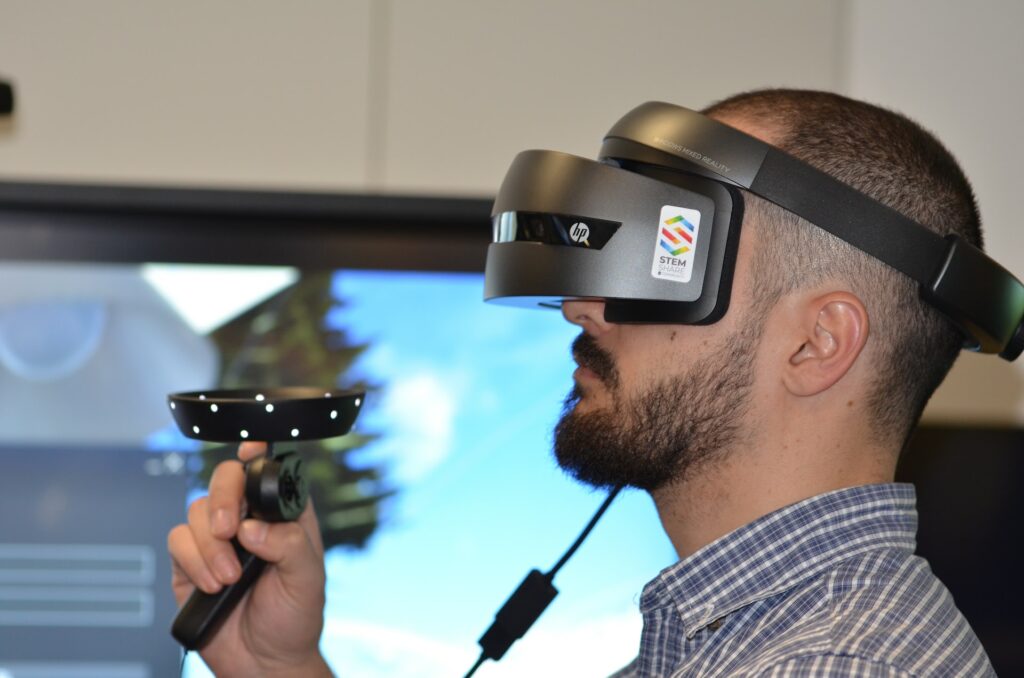Immersing oneself in a fantastical digital landscape, battling dragons, or exploring uncharted planets, all from the comfort of your living room, is no longer the stuff of science fiction. Welcome to the world of virtual reality (VR) gaming, where the line between the real and the virtual blurs. As technology continues to evolve, VR gaming is rapidly redefining the boundaries of interactive entertainment.
The future of VR gaming is a hot topic among tech enthusiasts and gamers alike. With advancements in VR technology, we’re on the brink of a gaming revolution that promises to transform how we play, interact, and experience games. This article delves into the exciting prospects and challenges that lie ahead in the realm of VR gaming.
The Future of Virtual Reality in Gaming
This section embarks on a journey to unveil the future of Virtual Reality (VR) in the gaming industry, dwelling into expected technological advancements and the prospect of new genres birthed through VR technology.
Expected Technological Advancements

It’s undeniable that technology advancements in VR gaming will impact the mode of player interaction. For example, Haptic technology, which provides tactile feedback to simulate a physical experience, represents a promising frontier. The use of this technology, as exemplified by the Teslasuit Glove, amplifies immersion, allowing gamers to feel virtual textures and temperatures. Furthermore, advancements in eye tracking, like those seen with the Fove 0, might offer more precise control and realistic in-game interactions. Finally, developments in artificial intelligence and machine learning technologies can be expected to deliver more responsive and dynamic gaming environments, creating a truly immersive VR experience.
Potential New Genres in Virtual Reality Gaming

As VR technology leaps forward, so too does the potential for unique gaming genres that hinge on immersive, interactive elements afforded by advanced VR. Picture fitness games that transcend simple rhythm-based titles like Beat Saber, evolving into deeply-interactive, full-body workout experiences. Imagine educational games that employ immersive environments to aid in learning and retention. Strategy games may also take a new form, allowing players to walk around a virtual war table, commanding armies with a sweep of their hands. The intersection of VR technology and cloud gaming, as seen with platforms like Google’s Stadia and Nvidia’s GeForce Now, clears the path for persistent, ever-evolving VR worlds.
The Impact of Virtual Reality on the Video Gaming Industry
Diving deeper into the world of VR, it’s apparent that these advancements are not only enhancing gaming experiences, but also significantly impacting the economics of the industry. Let’s explore how these changes ripple throughout the video game industry.
Financial Implications for the Video Game Industry

Virtual Reality’s rapid expansion and anticipated advancements plaster a significant effect on the financial facets of the industry. As per insights from Statista, the market size of VR gaming was estimated at 15.1 billion USD in 2020, with a forecast to reach 45.09 billion USD by 2025. Additionally, investment in VR technology, both by established gaming companies and startups, has been on an upswing. For instance, Facebook acquired VR innovator Oculus for 2 billion USD, highlighting faith in the future of VR gaming.
Digitally Immersive Experience
The future of VR gaming holds immense promise, set to revolutionize player interaction and immersion. Technological advancements like Haptic technology and eye tracking are poised to redefine game mechanics, while the convergence with cloud gaming opens up possibilities for expansive, persistent VR worlds. It’s clear that VR is not only shaping the gaming industry but also societal norms and relationships. However, as we stand on the cusp of this new era, it’s crucial to navigate the ethical considerations. Issues like desensitization to violence, data privacy, and accessibility need careful thought. As VR gaming evolves, it’s upon policymakers, developers, and users to strike the right balance between innovation and ethical responsibility. In the end, the future of VR gaming is a thrilling journey of discovery, one that’s set to transform the way we play, learn, and interact in the virtual world.



